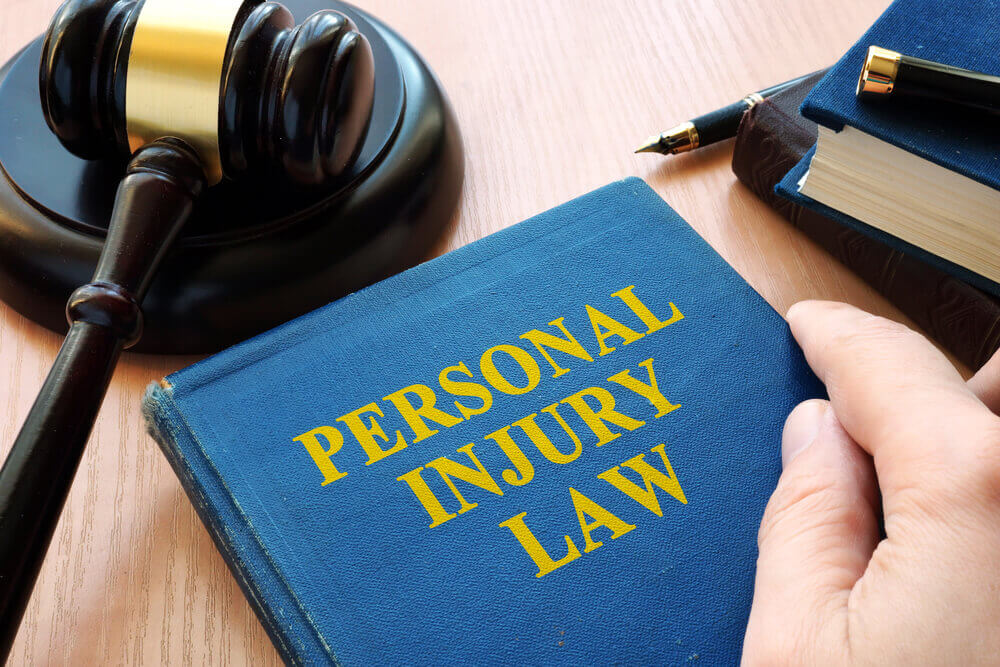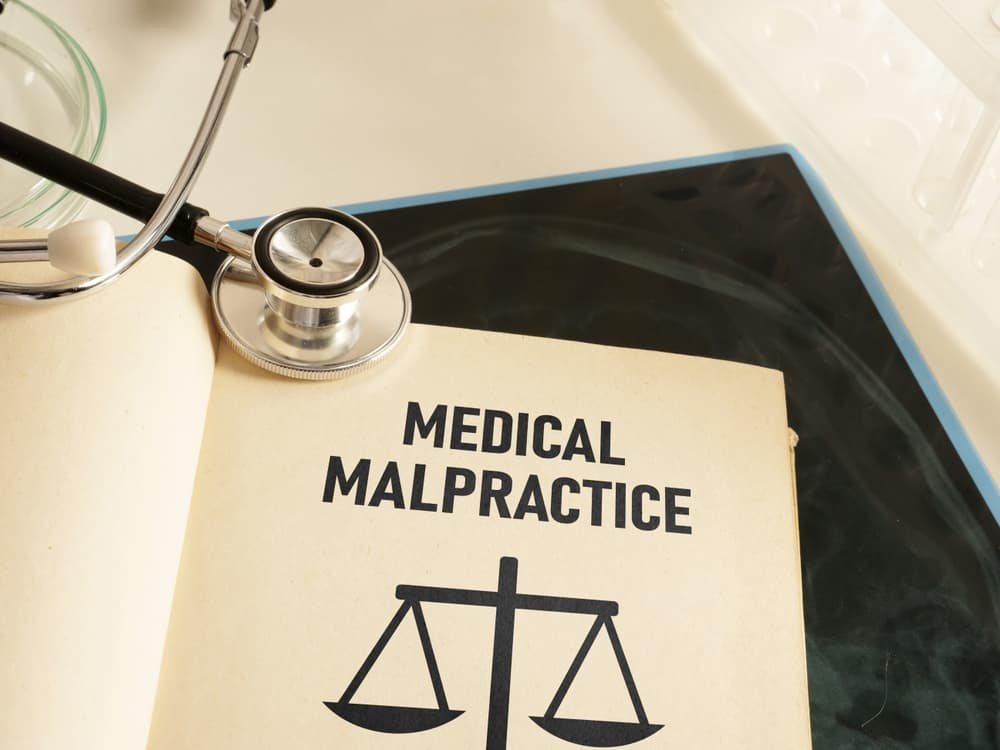If you suffered a serious injury because of someone else's negligence, you probably qualify to pursue compensation from the at-fault party through a personal injury claim or lawsuit. But how does a personal injury lawsuit work? In a personal injury lawsuit, the injured victim (plaintiff) files a complaint against the allegedly negligent party (defendant). What happens next depends on the availability of certain evidence, the cause of the claimant's damages, and other important factors.
Yet, a personal injury case involves many steps before you ever talk to the defendant's representatives about compensation. You must prove your case based on supporting evidence, and that evidence takes time to gather. Additionally, insurance covers damages in most personal injury cases, particularly with car accidents and other types of motor vehicle accidents, as well as many slip and fall injury claims and medical malpractice, among others.
Thus, you may pursue compensation first from the at-fault party's insurance company through an injury claim before ever filing a lawsuit.
If you have questions about how a personal injury lawsuit works or to learn more about your options for pursuing compensation, you should consider partnering with an experienced personal injury attorney. They can review your case during a free initial consultation and inform you of your rights and options. A lawyer can also advise on the best course of action and handle your case from start to finish.
Personal Injury Claims vs Personal Injury Lawsuits
Before learning about how a personal injury lawsuit works, you need to understand the difference between a personal injury claim and a lawsuit. Personal injury claims and personal injury lawsuits are related, but each is a distinct legal process that an injured person can pursue to seek compensation for damages they suffered due to another party's negligence or wrongdoing.
Personal Injury Claims
A personal injury claim is a formal request for compensation made directly to the at-fault party's insurance company. The injured person--or usually their attorney--negotiates with the insurance company to reach a settlement agreement. The process is generally less formal and may not involve court proceedings. Parties are typically able to resolve claims quicker and with lower costs compared to lawsuits. However, many times, the insurance company refuses to offer an adequate amount to cover all of the claimant's losses, or they dispute liability. If parties can't reach a fair settlement, an attorney can file a lawsuit on behalf of the injured person and begin the litigation process.
Personal Injury Lawsuits
A personal injury lawsuit is a legal action filed in court against the at-fault party. As mentioned, lawsuits are initiated when settlement negotiations fail or when the at-fault party denies liability. Lawsuits can also arise if the insurance company acts in bad faith or violates the terms of the settlement agreement. In some cases, lawsuits are necessary to recover compensation if the defendant doesn't have insurance or their policy limits are too low.
The court process is more formal, involving filing legal documents, conducting discovery, and possibly going to trial. Lawsuits can be time-consuming and costly, but they may result in higher compensation amounts. A judge or jury determines the outcome of the case and the amount of compensation to award.
In both claims and lawsuits, the injured person must prove that the other party's negligence or wrongdoing caused their injuries and resulting damages. Damages may include medical expenses, lost wages, pain and suffering, and other related costs.
Gathering evidence to establish liability and successfully navigating a personal injury action are complex and require the knowledge and skills of an experienced personal injury lawyer. Additionally, taking a case to court requires legal knowledge as well as an understanding of courts and procedures. If someone has no experience actually taking a case to trial and presenting an argument before a judge or jury, they stand little chance against the seasoned legal representation the insurance company will most certainly use.
In fact, studies show that people who hire personal injury attorneys stand a much better chance of getting a favorable settlement. Also, their compensation awards are, on average, 3.5 times higher than those who don't hire attorneys.
How a South Carolina Personal Injury Lawsuit Works

Whether your injuries result from a car accident or a defective product, every type of personal injury lawsuit comes with unique processes, norms, and laws. Plus, every attorney has a unique approach to handling personal injury cases. On top of it all, your unique case will have distinct factors that influence your next steps.
Still, personal injury victims can expect to take specific steps when they bring a case. Here's how most personal injury lawsuits work:
Investigating the Injury Accident
To win a lawsuit, you’ll need to prepare. You will need a lawyer who can gather evidence to show that:
- You were injured.
- The other party’s negligence caused your injury.
- The negligent party (or someone else) is liable for your losses.
- You have damages.
So, let’s say that you were in a slip-and-fall accident. If you hire a lawyer, they should investigate how you were injured, the circumstances surrounding your injury, and how the responsible party acted negligently.
Evidence in your case can include:
- A police or incident report
- Eyewitness statements
- Videos or photos of the accident scene
- Surveillance camera footage
- Records of past incidents or safety violations by the property owner
- Your medical records
The types of evidence used to build your case will vary based on the circumstances. So, in a car accident case, you could also use a car accident report or citations issued to the other driver.
Sometimes, a lawyer can subpoena certain forms of critical evidence held by the defendant or other third parties. For instance, they could request traffic camera footage from government agencies to prove that a hit-and-run driver fled the scene of a car accident.
Identifying Your Damages
In legal terms, your recoverable losses are called damages. Again, you’ll need evidence to prove that you have damages in the first place.
Relevant evidence may include:
- Medical records
- Medical bills or invoices
- Statements from your doctors or mental health counselors
- Records of pay stubs and employment documents
- Statements from your colleagues or family members
Your recoverable damages may be financial or non-financial. So, you may recover compensation for the medical costs and lost income you suffered due to the accident. But, if your injuries affected your life (personally and professionally) or left you with significant pain and trauma, you can argue for other losses.
A lawyer will have experience identifying damages in personal injury cases. They can help you put a number value on both the economic and intangible challenges you face.
Gathering Other Supporting Evidence
Generally speaking, the stronger the evidence in your case, the better the possible outcome. A good lawyer may gather other forms of supporting evidence just to make sure that you go after the total compensation you deserve.
They may take the time to collect other types of supporting evidence to demonstrate the extent of the accident and your damages. This may include evidence from accident reconstructionists, who can recreate the details of a car crash. Or, they could get testimony from a medical expert to demonstrate how the accident led to your physical injuries.
Negotiating an Out-of-Court Settlement
If you file a personal injury lawsuit, that doesn't mean you automatically have to go to trial before a jury. Once you have your evidence in hand, you or your lawyer can file a suit against the liable party. Then, they may respond by offering you a settlement.
This begins the process of negotiations. After all, going to court takes time and costs money for both parties. If the plaintiff and the defendant can agree on a fair settlement out of court, they will often do so. If you have a lawyer, they can generally handle negotiations on your behalf. They can work with the liable party, their insurance company representatives, and/or their lawyer to secure an amount that reflects your losses.
Also, South Carolina courts require parties to go through mediation before the trial. During pre-trial mediation, both parties meet with an impartial third-party mediator whose goal is to help the parties resolve issues and settle the case. If parties still can't reach a settlement in mediation, the case goes to trial.
Going to Trial
You may need to go before a jury at trial if the other party:
- Denies liability
- Claims you caused your injury (or it resulted from a prior condition)
- Will not offer a fair settlement
- Claims that your injuries aren’t as serious as you say
- Delays investigating your case or will not participate in settlement negotiations
- Engages in other bad-faith tactics to downplay your case
A lawyer can map out a legal strategy that suits your case’s needs. If they believe that going to trial offers the best way to get compensation, they can represent your case before a jury.
It can take time to secure a trial date. So, litigation can take more time than resolving your case via an insurance claim. Once the jury hears your case, they will determine whether to award damages. If they do, the defendant must pay you compensation.
A Personal Injury Lawyer Can Work Based on Contingency Fees
Many people don't realize that hiring a personal injury lawyer can be affordable. Often, injury lawyers work based on contingency fees, which means that you don't owe upfront fees to start a case. With a contingency-fee-based arrangement, your lawyer only receives payment if they resolve your case successfully. If they do, they only receive a portion of your final settlement or award as payment for their services.
If you call a legal representative for a free consultation, they can tell you more about how their contingency fees work. They can also explain if you may have a case and how a personal injury lawsuit works.
Other Important Aspects of a South Carolina Personal Injury Case
Even if a personal injury case seems clear-cut, these cases entail many complex processes and details. Also, state law determines how many aspects of personal injury cases work. Some important aspects of personal injury cases include:
Meeting Deadlines
You must meet important deadlines when you file a personal injury lawsuit. Each state sets its own deadline, known as the statute of limitations. South Carolina, for instance, allows you three years from the date of your injury to file a personal injury lawsuit in civil court. The clock generally starts ticking on your accident date, but it may be "tolled" or paused in certain circumstances, such as if you didn't discover your injury until some time later. Then the clock would start on the day you discovered the injury.
However, you'll want to begin the legal process as soon as possible. As you can see from the steps outlined above, a lot of preparation goes into building a personal injury case. Also, you can lose certain evidence if you fail to act quickly. This evidence includes security camera footage or internal company documents from the liable party. Also, eyewitnesses may have trouble recalling important details as time passes.
Most importantly, failing to meet the statute of limitations can have a devastating effect on your case. You may not have the ability to collect compensation, even if you truly deserve damages otherwise.
Each Type of Personal Injury Case Has Unique Laws
Personal injury is a broad term that refers to many possible situations. You could likely bring a personal injury case if you faced injuries due to someone else’s carelessness or negligence.
Injury cases include:
- Car accidents
- Truck accidents
- Slip and fall accidents
- Nursing home abuse and neglect
- Work Injuries
- Medical malpractice
- Wrongful death
Many other types of injury cases exist. But, within this list alone, plaintiffs could face many different procedures and state laws that could affect their cases for compensation.
For instance, medical malpractice cases often come with their own unique statute of limitations deadlines. Many states also require that plaintiffs get a medical expert’s opinion showing that they have a valid malpractice case. Again, an injury lawyer with experience in your case type should know all about the unique laws and procedures that govern your situation.
When Multiple Parties Are Involved?
Some injury cases have just one single responsible party. For instance, in a car accident, the at-fault party who causes the accident will often bear responsibility for paying the victim’s damages.
However, other types of injury accidents have more complicated factors. Multiple parties could even bear liability, such as in trucking accidents. When a truck driver causes a crash, their employer the trucking company could also be on the hook for damages.
When multiple parties bear liability, you can bring a case against all of them. However, this often involves a great deal of complexity. Therefore, you may want to have a lawyer on your side as you navigate such a case.
Understanding How Much You Could Get in a Settlement
Often, one of the first questions personal injury victims have is about their potential settlement or award amount. That’s an important question, but the answer depends on many factors unique to your case. If you have a lawyer, they can investigate your case’s facts to determine how much you could receive.
In general, your case’s potential worth depends on:
- The severity of your injuries
- The costs involved in your medical treatment
- How the injury affected your life, both personally and professionally
- Who bears liability for your damages
- The strength of the evidence in your case
So, the worse your injuries and the more they challenged your life, the more you could receive in compensation. When you have a lawyer, they use various strategies to argue for the highest possible amount in your case.
Still, you don’t have to have a catastrophic injury to get financial recovery. If your injury cost you money in medical bills, lost income, or left you with emotional hardships, you could seek damages.
What to Do if You’re Thinking About Filing a South Carolina Personal Injury Lawsuit?
When you start to see bills piling up after suffering harm, you likely want to know how to take action for your case. Remember: the things you do (and don’t do) after your accident can affect your case’s outcome.
Here’s what you should consider:
Don’t Accept the First Offer
When you file a personal injury lawsuit, the liable party may contact you to start making offers and avoid a jury trial process. However, be wary of these offers. Often, the first number they toss out is not an amount that reflects your true losses.
Insurance companies may do this to capitalize on an injury victim’s lack of experience with personal injury lawsuits. They might expect that you’ll say yes and sign away your right to seek further compensation.
Don’t give them this opportunity, especially if you have serious injuries. Instead, wait for a case review from a law firm so you can understand your case’s potential worth and legal options. A lawyer can negotiate for what you deserve.
See All Your Medical Treatments Through
When you bring an injury case, the first place the defendant and their legal team will look to dispute your case is your medical record. They may try to say that your injuries aren’t serious or that they resulted from a prior condition. They may also say that you failed to get all the recommended treatment your doctor prescribed, and this caused the extent of your injuries.
Be sure to get all the treatment you need. As soon as you notice symptoms of an injury, see a doctor or go to a hospital. Take all prescribed medications, get surgery, or take the time off to rest. All of this will help you recover as smoothly as possible. It will also protect your right to seek fair compensation.
Think About Legal Help
Again, working with a lawyer can go a long way in benefiting your case. A personal injury lawyer knows the ins and outs of these cases. They know how to gather the evidence needed to show that the defendant should pay you. They also know how to argue for the highest possible financial recovery.
An attorney can guide you through every step of the legal process. They can advise you on your next steps and ensure you seek recovery for your treatment and other losses. Then, while you focus on recovering, they can handle the paperwork, the communications, and the legal strategy involved in your case.
Contact an Experienced SC Personal Injury Attorney Today

If another party hurt you or a loved one through their carelessness or recklessness or caused you intentional harm, don't wait to get the legal representation you need to hold them accountable and get the compensation and justice you deserve.
The South Carolina personal injury lawyers at Morris Law, LLC, have helped thousands of injured clients in the Myrtle Beach area and across our state with their complex personal injury cases. We can review your case at no cost and let you know whether you have a claim and how best to proceed. You can also rely on us to work diligently to build a strong legal case for you and zealously advocate for you throughout the claims process.
Contact us today for a free, no-obligation consultation and learn how we can help you get the monetary compensation you need to realize as full of a physical recovery as possible.







